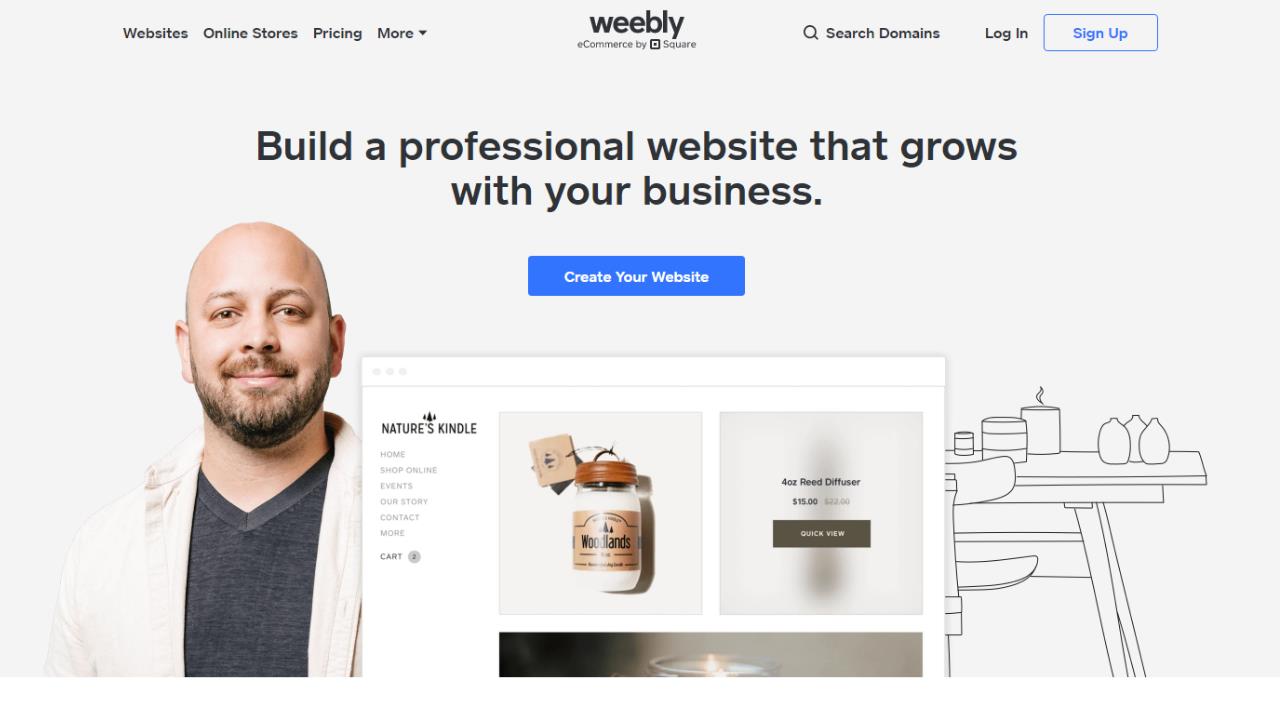
In today’s digital world, it has become very easy to create a website or blog. For this, you have many platforms that you can choose from and create your website or blog.
In this article, we will help you choose a good CMS. We will provide you with a breakdown of everything you need from the best CMS, and the 7 best CMS platforms to build a website in 2021.
Introduction to Content Management Systems (CMSs)
A Content Management System (CMS) is an application that enables you to manage your content.
That would be a very basic example of a Content Management System. Of course, the best CMS options these days are in the market. They enable you to index your content, make changes to it, use visual editors, and format it more.
It is a type of tool that helps you to build a website without any coding knowledge. Usually, they give you a drag-and-drop function, through which you can design a website without coding knowledge.
Here is a list of the best free Content Management System options available in 2021 ordered to popularity and features.
WordPress
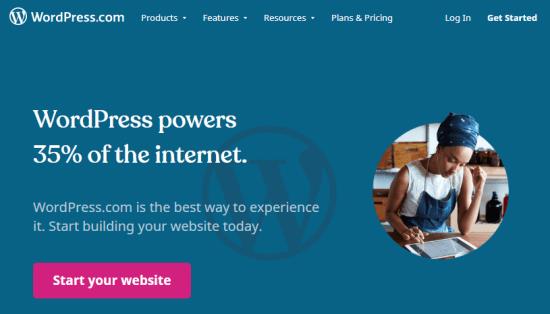
WordPress is the largest Website & blogging platform in the Blogging world. About 34% of websites available are made of WordPress.
It is an open-source platform. Selected developers are working on making this platform more effective as compared to the previous one. It is a mobile-ready platform for blogging and an excellent website platform for a variety of websites. It is a versatile CMS. It comes in two versions.
• WordPress.com
• WordPress.org
WordPress.com is a paid version and wordpress.org is free of cost for any user. I would like to recommend you wordpress.org because of the following features and functionalities.
Paid platform Free and open-source platform for every user.
WordPress is the fastest and easiest website development platform. WordPress is such a platform that can be used easily even with no experience. It works on drag and drop functionalities. WordPress Dashboard provides most of the free themes and plugins for users.
WordPress offers customizable themes. You can customize the theme according to your blog. In WordPress, you also get free plugins provided by you, which are used to add extra functionality to your websites.
Pros of WordPress
- WordPress has themes
- WordPress has plugins
- WordPress can host forums
- WordPress can host stores
- WordPress can host blogs.
- Build e-commerce sites
Cons of WordPress
- You have to use different plugins for additional convenience.
- Frequent Theme and Plugin Updates
- Slow Page Speed
- Poor SEO Ranking
- Website Vulnerability
- Website Can Go Down Without Notice
1. Joomla!
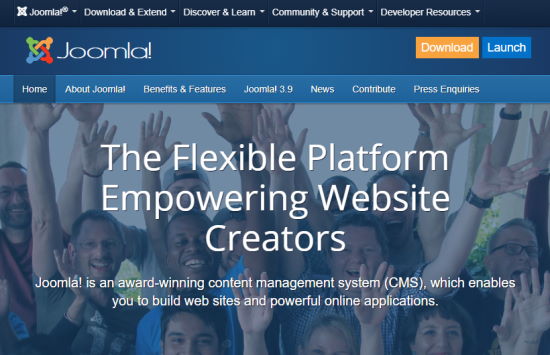
Joomla is an open-source content management system(CMS). It helps you build powerful dynamic & static websites and applications. It has an intuitive interface that helps you use its features and functionality to the full.
Jumla has gained huge popularity over the past decade and has successfully evolved into one of the most widely used content management systems globally. Since its inception in 2005, it has successfully captured a large scale and it certainly has over 99+ million downloads to date.
Joomla is written in PHP and uses MySQL databases to store data. It can be set up with a one-click install through a web hosting control panel. There are hundreds of articles on the web to help you with how to install Joomla.
Joomla uses a Model-View-Controller (MVC) design architecture. According to the MVC pattern when Joomla processes a request, it first analyzes the URL to evaluate which component will process the request. The model view contains the data used by the component. It is also the model’s responsibility to update the database when you need it. It can contact the model to get the needed information.
Pros of Joomla
- Free
- eCommerce Supporting
- Easy to Install
- PHP Scripts
- Extensions Availability
- Adaptability and Flexibility
- Active Community
- SEO capabilities
Cons of Joomla
- Slightly Complex
- Small Module Marketplace
- Compatibility
2. Drupal
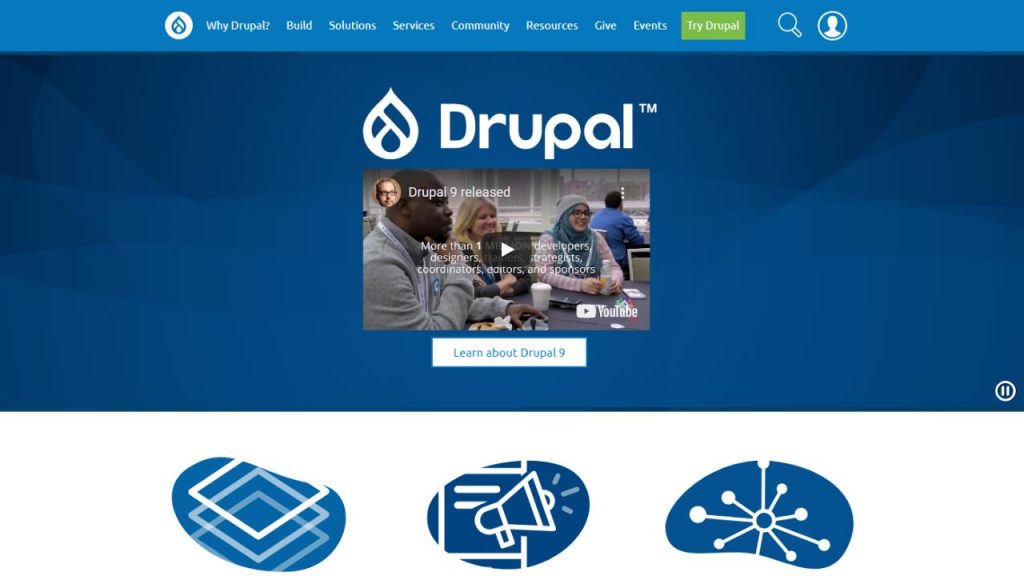
The Drupal CMS platform is a popular open-source content management system written in PHP. Made by a Belgian student in the early 2000s. It now empowers some of the major websites (WhiteHouse.gov, Weather.com, etc.) on the web. It is considered as a competitor to CMS such as WordPress and Joomla.
It is used by millions of people and organizations around the world to create and maintain their own websites.
Pros of Drupal
- Content management
- Taxonomy for organizing content
- Flexible navigation system
- Comments
- Search
- Content listings
- Contact forms
- WYSIWYG editor
- Nice content authoring experience
- Multilingual content & user interface
- User management
- Accessibility
- Responsive design
Cons of Drupal
- More complex than other CMSs
- Requires time and effort
- Performance issues
3. Blogger

Blogger is also one of the best and free blogging platforms. This platform is easy to use without coding. If you are starting blogging then this is the best blogging platform for you. If you want to earn money with Google AdSense, a blogger is a perfect platform for you.
Blogger Platform is a Google service. Pyra Labs launched it in 1999. In 2003, Google redesigned the Blogger platform properly. To start blogging on Blogger, you only have to have Google’s Gmail account.
Blogger also has a vast collection of themes that can be used by the user for free. If you are using Blogger platform free services and you have not yet added your custom domain name, your domain will be shown as yourname.blogspot.com.
The Blogger platform was not created for professional blogging. It is suitable for a normal blogger who wants to run any blog other than their business.
Pros of Blogger
- Free blogging platform.
- Simple design and layout.
- Easy to use and manage
Cons of Blogger
- Doesn’t contain any plugins to increase Functionality in the Blog.
- In this, you do not have many options to earn.
- Blogger is kept up-to-date with new features.
- Google can delete your blog anytime without any warning.
4. Wix

Wix is a hosted platform for creating sites. It also has the functionality of drag and drops to create a website or blog. A blog can be added to the website using the Wix Blog App. Wix is the best opportunity to provide a platform to create a free blogging platform.
In Wix, you can start your blog for free, but this platform does not provide you with a domain name for free. To get a custom domain name you need to buy a premium plan. Wix will not let you put your ads as WordPress does.
It was founded in 2006 as a platform that works with no coding skills. Around 120 million bloggers worldwide are using Wix.
Pros of Wix
- Easy to set up with quick functions.
- drag and drop functionalities.
- Dynamic page.
- SEO friendly.
- Mobile Optimize.
Cons of Wix
- Limited options for an E-Commerce website.
- Provides limited free accounts.
- A template cannot be modified once it has been selected.
- Show its Wix ads to use websites.
- Not free for 3rd party apps.
5. Weebly
Weebly is a free tool for creating good looking and responsive websites and hosting your websites. This is mostly good for those who want to launch their own business site. But this does not mean that this forum is not for bloggers.
Weebly and Wix are slightly the same as other platforms because both entertain their users with a drag and drop system for website customization.
Pros of Weebly
- Easy customization.
- Integration with other apps and add ons.
- Intuitive and easy to use.
- Affordable.
- Constantly improving and adding new features.
- Meets standards for security and cookies.
- Provides a strong support community to solve problems.
Cons of Weebly
- The platform may occasionally cause disturbances
- Some formatting and placement options are not customizable and can be frustrating for some users.
- When you are uploading photos, you have to wait for the upload to finish before working on any other part of your site.
6. Squarespace
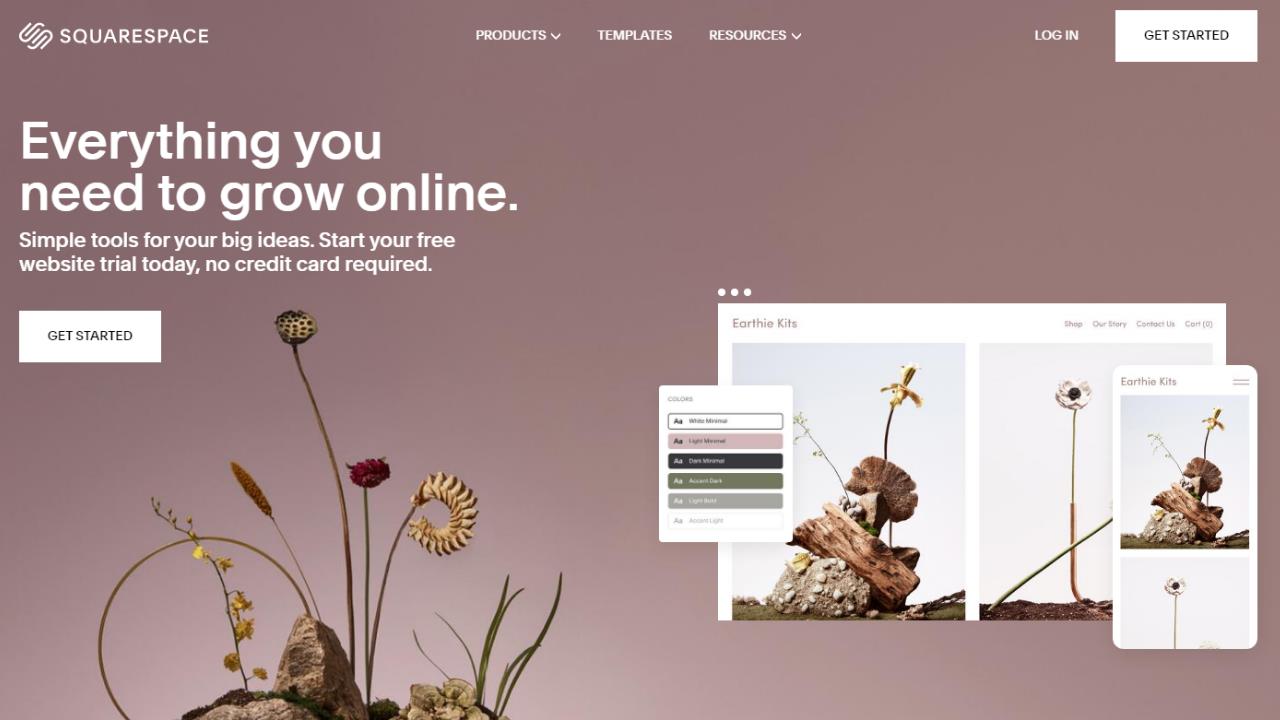
Squarespace is a website builder tool aimed primarily at small businesses.
It allows users to create a professional site in a browser without coding and has the option of a user-friendly content management system (CMS).
As such, rather than stacking Dreamweaver or a comparative website architecture bundle and producing lines of code to make a webpage, you do the entirety of this internet utilizing Squarespace’s format and style proofreader.
Pros of Squarespace
- Template Design
- Backend Design
- All-in-One Platform
- Speed, Security & Data Export
- Customer Support & Improved Onboarding
Cons of Squarespace
- Pricing
- Advanced Marketing Tools
- Apps & Extensions
- Backend User Functionality
- Squarespace eCommerce Addendum
Conclusion: 7 Best CMS Platforms to Build a Website in 2021
In this article, all the content management systems of the 7 Best CMS Platforms to Build a Website in 2021 have been told that you should choose according to your budget or services, or security.
Before choosing a content management system, you have to find out what type of website you want to create.
I hope you like this article very much. If you liked it, then share and comment on this post.
